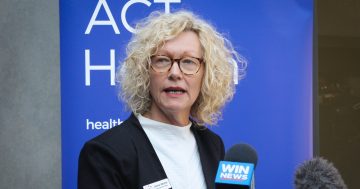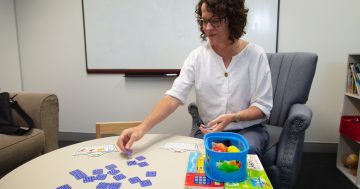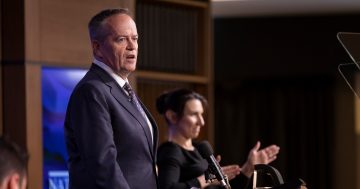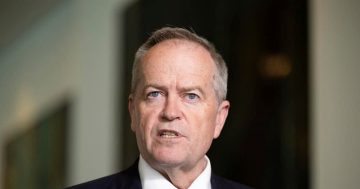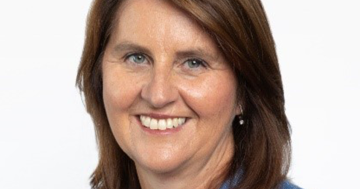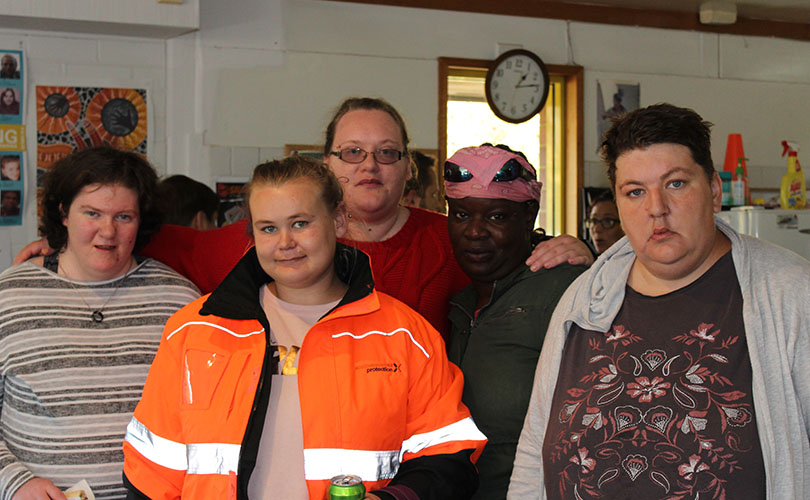
NDIS participants at Woden Community Service’s Friday lunch. They will need new providers. Photo: WCS.
Woden Community Service is confident it can find alternative providers for the 120 NDIS participants affected by the phasing out of their support services.
The 120 adults aged under 65 have a range of disabilities. About half have psycho-social issues, including mental health conditions that affect their ability to operate independently in the community without support.
The next biggest group have intellectual disabilities, while about 3 per cent have physical disabilities.
Support staff help them at home and take them out into the community for activities and social gatherings, including a Friday lunch at WCS.
Woden Community Service executive manager of aged care and disability services Kerry Pearce said not all participants had heard the news, but so far, there had been a range of understandable reactions, from grief to ‘let’s get on with it’.
“It’s been a combination of tell me where am I going next to real sadness about losing support that has been with them for a long time,” she said.
This particular stream of support services at WCS has been operating for seven years, but MS Pearce said it had never broken even.
Losses had become unsustainable due to the pricing structures of the National Disability Insurance Agency (NDIA).
WCS continued to lobby the ACT and Federal governments to review the poor pricing for providers across the NDIS and supported the recommendation of last December’s NDIS Review for an independent pricing body outside of NDIA.
“That’s a positive step to have independent pricing to see what it actually costs to provide these services,” Ms Pearce said.
She said the pricing issue was sectorwide and 75 per cent of providers are thought to be struggling or be in deficit in 2022-23.
The Ability Roundtable Benchmarking White Paper reported over 68 per cent of participant NDIS organisations reported a loss for the 2021-22 financial year.
In the recent National Disability Services pulse survey, 83 per cent of providers raised concerns about their ability to deliver services using the new price limits.
Nonetheless, Ms Pearce said there was capacity in the ACT for WCS’s 120 clients to be found places elsewhere.
“We’ve been in contact with about 20 providers and there’s plenty of capacity,” she said.
“There’s such competition in Canberra for this particular support type.
“It would be terrible if people couldn’t have that support, but that’s not how it’s going to pan out.”
WCS will take until May to phase out the service so the sector could absorb that number of people more easily.
Ms Pearce said other providers could cross-subsidise services from other parts of their organisations, but a standalone service was not viable for WCS.
She said the 30 staff affected would easily find positions elsewhere, given there is a national shortage of support workers in aged care and disability.
“I am confident knowing what the market is like and how hard it is for us to recruit that there will be space for them out there,” Ms Pearce said.
WCS was not withdrawing completely from NDIS services and will still provide support coordination and therapies such as pediatric speech pathology.
Ms Pearce said WCS still supported NDIS and the changes it could make to people’s lives.
“We’re not exiting because of a lack of belief in what NDIS can do,” she said.
Local federal MP David Smith said he would be raising the concerns of WCS with NDIS Minister Bill Shorten.
“Our priority will be to work with our affected constituents to ensure they have the support they need, but we work closely with providers and advocates to ensure that any concerns they have are raised,” he said.
Comment was sought from Mr Shorten.












